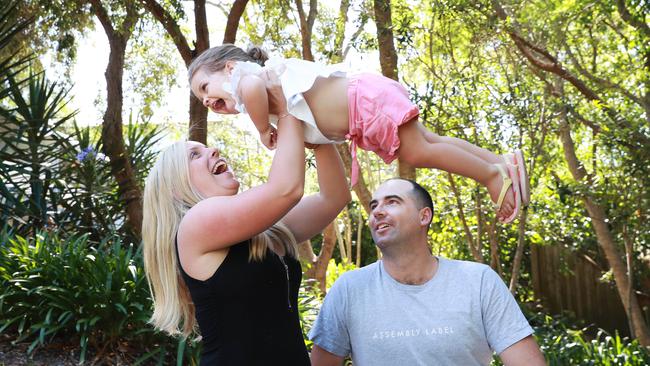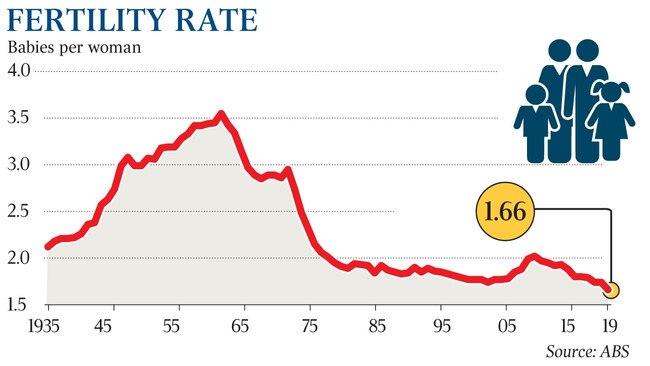Cause and effect: lockdown leads to Covid baby boom
After a year spent in our homes, Australia is poised for a COVID-19 baby boom in the first half of 2021.

After a year spent in our homes, Australia is poised for a COVID-19 baby boom in the first half of 2021 amid reports obstetricians and gynaecologists are fully booked from March to May next year.
Sydney obstetrician and gynaecologist Rachael Hickinbotham has lifted her cap from about 18 patients a month to 22 to accommodate the demand.
“I have noticed a relative boom, definitely in March and May,” Dr Hickinbotham said. “There was a lot of anxiety going in (to the pandemic), but when you sit back and reflect, there have been some really positive changes.”
In Melbourne, private obstetrician and gynaecologist Guy Skinner reported a 20 per cent increase in the number of babies booked in to be delivered in March, April and May.
“I have got over 200 women booked in for the first half of the year … which is not usually that full,” Dr Skinner said.

“People don’t feel they are missing out on other opportunities in their life,” he said. “With COVID, there has been a pause which I think has made them re-evaluate and think ‘now is the time to expand the family’. We are certainly busier than we have been for a few years, and I think COVID is a significant part of that.”
Dr Skinner said patients reported they felt anxious and were uncertain about their economic future as initial news of the pandemic set in.
But then families that sustained stable work decided it’ a good time to have a baby while they can’t travel overseas and are able to work more flexibly from home.
Dr Skinner said he had seen an increase in the number of surprise and planned pregnancies, and women from about 25 to 40 have booked in for their deliveries.
Despite the looming baby boom, the Australian Bureau of Statistics said there was a 3 per cent drop in the number of births in 2019 compared with 2018.
On Wednesday, it reported that there were 305,832 registered births last year, 9315 fewer than there were in 2018.
Fertility rates also dropped in the past 10 years, with a rate of 1.66 babies being born per woman in 2019 compared with an annual average of 1.97 since 2009. The median age of mothers was 31.5 years, and 33.5 years for fathers.
Sydney mother Samantha Thompson and husband Mitchell are one couple who are expecting.
“In a way, now is the right time — you are able to spend time at home more, and don’t have those pressures of going away,” Ms Thompson, 31, said.




To join the conversation, please log in. Don't have an account? Register
Join the conversation, you are commenting as Logout